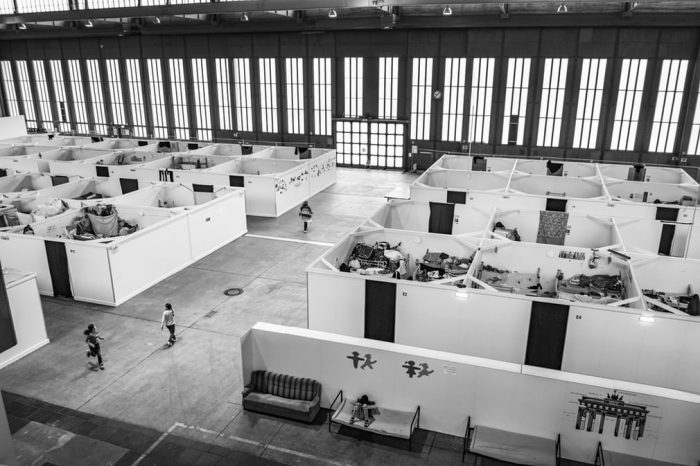Deutsche GIZ lässt EU-Lager für 1,3 Mio € in Marrakesch errichten
Yabiladi | 13.11.2017
«Les spécialistes savent bien que la question de la protection est un biais des politiques migratoires européennes car celle-ci se fait presque toujours dans l’intérêt des Etats membres et non des premiers concernés, les migrants, que l’on veut maintenir à l’écart du sol européen le temps de les trier et de sélectionner ceux qui intéressent.»
Aux Ateliers de la pensée qui ont eu lieu à Dakar début novembre, où était présent le Gadem, qui proposait à partir de l’expérience marocaine une convergence des sociétés civiles africaines pour promouvoir une politique migratoire africaine et dans l’intérêt des Africains, la question de la gouvernance des mobilités a été abordée à maintes reprises, traduisant une véritable préoccupation face au déséquilibre stratégique en faveur de l’Europe. La problématique des migrations, des mobilités et des frontières a été abordée à partir d’une préoccupation commune que les mots d’Achille Mbembé traduisent parfaitement : «Les Africain.e.s sont déjà étrangers partout ailleurs, ils n’ont pas besoin d’être des étrangers chez eux».

